If you’re looking to make a career transition or start a job search, it can be difficult to know where to start, especially if you’re new to the process. You’re not alone—many veterans and military spouses struggle with discouragement and feeling “lost” in the search. But, if you organize your approach, you may be able to maximize your chances of success. In this blog post, we’ll provide seven tips to help you organize and improve your job search, so you can get ahead in your transition.
Keep Track of Your Applications
When you’re looking for a new job or career change, it can be difficult to keep track of all the places you’ve applied and the various stages of the application process. To stay organized and ensure you don’t miss any steps or opportunities, it’s important to keep track of your applications.
To start, create a spreadsheet or chart with columns for the company, position, date of application, contact person and any other relevant information that will help you keep track, and update it regularly so you have a comprehensive list of all the jobs you have applied to and the progress of each one. This will also help you avoid accidentally applying to the same job twice. If you don’t want to create your own spreadsheet, you can download ours instead.
You may also want to create a tracking system in your email inbox. Create folders for each stage of the job search process – such as ‘applied’, ‘interview scheduled’, ‘interviewed’, ‘follow up’, and ‘outcome’ – and move emails related to each job application into their appropriate folders. This way, you can quickly and easily see which companies you’ve already applied to and the stage of each application.
Use a Job Board
Job boards are an essential tool for job seekers—especially those with a wide geographical search area—because they offer a convenient way to search through thousands of job postings from all over the world. By using job boards, you can easily narrow your search to positions that match your qualifications and interests. Fortunately, when it comes to veteran transition and career search, there is no shortage of job boards around.
When using a job board, start by creating an account and setting up your profile. This will allow employers to find you and review your qualifications. Make sure to use a professional photo and add any relevant experience or skills you have, as well as any awards, certificates, or other accomplishments you have achieved.
Once your profile is complete, begin searching for job postings. You can use the filters on the job board to find jobs in specific industries or locations. Take some time to explore the various postings and apply to ones that you think are a good fit for you.
As above, you’ll want to keep track of all the jobs you apply for so that you can follow up with them later. After submitting your applications, make sure to check back with the job board regularly for new postings that may be a better fit.
Check Out LinkedIn
LinkedIn is one of the most valuable tools available when you’re looking for a new job or career change, especially as a veteran or military spouse. Not only is it a great way to search for positions that may be posted, but it’s also a way to network with recruiters, hiring managers and other professionals who may be able to help you.
When using LinkedIn, make sure to fill out your profile with accurate and up-to-date information. You should also include a professional photo and any details about your education, skills and experience that will showcase your talents to potential employers. Don’t forget to ask for recommendations from previous employers or colleagues to build up your credibility.
Get Recommendations
When it comes to your job search, having a solid network is key, so utilizing the people in your network for recommendations can be a great way to get recommended and find job opportunities you may have never heard of.
First, reach out to old colleagues and bosses, who will likely have connections with hiring managers or recruiters that could help you find new job opportunities. Don’t be afraid to reach out and ask them if they know anyone who may be hiring, and let them know what you’re looking for. You’ll also want to be open as you attend networking events like local meet-ups and industry conferences—which aren’t just great places to meet potential employers, but they are also a great way to share with others what you are looking for, and possibly get pointed in the right direction to your next career.
Check Out Company Websites
When you are job hunting, one of the most important things you can do is to check out company websites. Applying through a third-party job engine can be helpful and feel more simple, but applying directly to the company website often gives you more visibility, as well as more up-to-date information, which may offer you the opportunity to customize your application to the specific job or company, which may help you stand out from the crowd.
Not only that, but companies tend to look more favorably on applicants who have taken the time to visit their website and understand their mission and values. When you visit a company’s website, take the time to read their mission statement, values, and news articles to gain some insight into what it might be like to work there and how to tailor your application accordingly. Also, look for any career pages or job postings, which could provide additional opportunities to apply.
Finally, consider reaching out to someone in the company directly – if they have an email address or contact form on the website, use it to introduce yourself and express your interest in the organization. Taking these steps can give you a leg up over other applicants, and may even lead to an opportunity you wouldn’t have found otherwise.
Go to Networking Events
Networking can be an effective way to land a job, and it often pays off to attend networking events. Networking events give you the chance to meet people in your field and create connections that could lead to job opportunities. It’s important to do your research and find out which events are the most relevant for your job search.
When attending a networking event, remember to bring plenty of business cards and have an elevator pitch prepared. You should be ready to introduce yourself and explain what kind of job you’re looking for. You can even use this as an opportunity to ask questions and learn more about potential employers.
After the event is over, follow up with those you met with a note or email. Even if your connections weren’t recruiters or in a hiring position, you never know who you will meet and who will be able to refer you to someone else.
Ask for Informational Interviews
An informational interview—a brief one-on-one meeting with a professional in the field you are interested in—is a great way to get inside information on a specific career field, gain insights into the industry, and to build your network of contacts. Informational interviews give you an opportunity to find out more about the job market in your desired field, as well as to get a better understanding of the skills and qualifications required for the job. They also allow you to get a better idea of what the job entails, including any potential challenges and how you can prepare yourself to excel in the role.
But remember: informational interviews are not job interviews, so it’s important to be respectful of your contact’s time and not ask them for a job. Instead, focus on learning more about the industry and getting advice on how best to pursue your career goals.
Stay Positive
When it comes to job searching or career transitioning, it can be easy to get discouraged. You may feel like you’re putting in a lot of effort and not getting anywhere, but it’s important to stay positive and keep your head up during a long job search or career transition.
The job search is a marathon, not a sprint. Employers need time to review resumes, conduct interviews and make decisions, so you may not hear back from everyone right away. It can also take time to find the right job, so don’t rush yourself and make sure you’re taking the time to consider all of your options.
When you’re feeling frustrated, it can help to remind yourself why you’re pursuing this job or career change in the first place. Focus on what drew you to the job or field in the first place and why you want it. Remind yourself of your goals and that even if it takes a little longer than you hoped, you will eventually reach them.
Finally, be kind to yourself. Don’t beat yourself up if you don’t get the job or don’t hear back from an employer. Try to learn from each experience and use it to make your job search better in the future.

